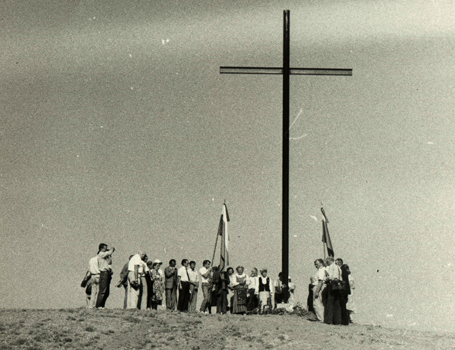Sixty years ago this week, non-Russian prisoners rose up in Kengir against their Soviet GULAG jailors. They were crushed by Soviet tanks, with at least 600 losing their lives in the process. But this rising, despite its defeat, in fact showed the power of the powerless and forced Moscow to change its methods of rule, according to a Ukrainian historian.
There had been revolts in the GULAG before, Oleksandr Zinchenko writes this week on an anniversary the Putin regime is not interested in recalling, but none in which it was so clearly the case that “what initially appears to be a hopeless defeat can be transformed over the longer term into a victory."
The history of the Kengir revolt,” he continues, “disproves the myth that the independence of Ukraine was achieved without effort and without blood. Kengir, a revolt of love, was one of those historical steps which in the end led to independence. Love destroyed the USSR. Love for freedom.”
The rising in Kengir, a camp in the Steplag region, began after a murder, Zinchenko continues. “Shortly after Easter, a column of Ukrainian lads shouted greetings to a column of young women prisoners: ‘Christ has Risen!’ ‘He is risen indeed,’ the women responded in the traditional fashion.”
That those involved were Ukrainians should not surprise anyone. They formed 46 percent of the prisoners in Steplag, a share three times their percentage in the Soviet population. Estonians, Latvians and Lithuanians formed another 22 percent; Belarusians, four percent; and ethnic Russians just under 13 percent.
The GULAG guards opened fire: 13 of the prisoners died on the spot, five more died in hospital, and 33 were seriously wounded. A subsequent investigation found that “there were no basis for the application of force.” But these killings sparked a broader revolt, with the prisoners scrawling signs on the walls like “Down with the Beriya-Murderers” and “Wives of Steplag Officers! Aren’t you ashamed to be the wives of murderers?”
The Soviet camp authorities decided to crush this challenge. On June 26, 1953, they sent in 1600 soldiers with 98 dogs, five tanks and other weapons. As Zinchenko notes,
“hundreds of Ukrainian women ... held hands and stood in front of the tanks. The tanks did not stop.”
One prisoner, “Semen Rak and his beloved held hands and threw themselves under a tank” in hopes of slowing if not stopping it. Another inmate, Alphonsas Urbanas, was saved by a Ukrainian woman who threw him out of the way of a tank. She “saved him at the cost of her own life.”
By the end of the carnage, 600 to 700 o the prisoners were dead, and the Soviet authorities bean their efforts first to hide and then to lie about what happened. But even as they did so, the authorities ultimately bowed to the will of the brave Ukrainian men and women of Kengir, changing first the camps and then opening the way to freedom for Ukraine.
As Ukraine continues to fight for its freedom, those who fought for it out of love at Kengir must not be forgotten. For more details on the Kengir uprising, see: 1 2 3 4.

